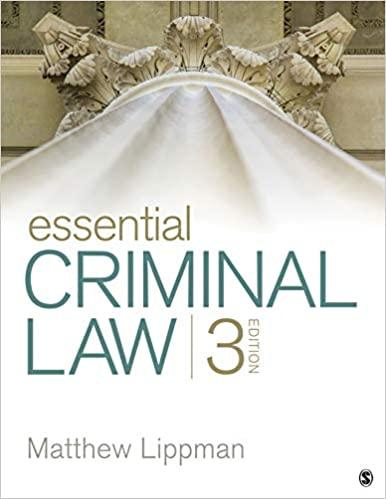Question
Reasonably foreseeable consequential damages may be available to the non-breaching party. True False A novation does not discharge the original contract. True False Once there
- Reasonably foreseeable consequential damages may be available to the non-breaching party. True False
- A novation does not discharge the original contract. True False
- Once there has been a delegation, the party who delegated is no longer liable on the contract. True False
- Any type of contractual duty may be delegated. True False
- Intended third party beneficiary (C) may enforce the "A-B" contract. True False
- Consent of the party who still has duties under the contract is required before an assignment may be made. True False
- Incidental damages are necessarily incurred because of a breach. True False
- Generally, breach of contracts for the sale of land may be enforced by the purchaser through the remedy of specific performance. True False
- A novation replaces an "A-B" contract with an "A-C" contract. True False
10- An accord and satisfaction will never discharge the underlying contract. True False
11- The contract remedy that cancels the contract and restories the parties to their original position is called
| A. | injunction | |
| B. | rescission and restitution | |
| C. | liquidated damages | |
| D. | All of the above |
12- If a limited remedy does not accomplish what it is intended to accomplish,
| A. | will be disregarded. | |
| B. | will result in punitive damages being assessed against the breaching party. | |
| C. | will have no impact to the non-breaching party. | |
| D. | none of the above |
13- When one with an employment contract has been wrongfully discharged, she
| A. | need take no action except to sue on the underlying contract | |
| B. | must take a similar job if offered, even at a lower salary | |
| C. | either A or B | |
| D. | none of the above |
14- An incidential beneficiary may not sue on the underlying contract because
| A. | the contract did not intend to benefit them | |
| B. | they lack standing to sue | |
| C. | neither A or B | |
| D. | both A & B |
15- An intended third party beneficiary may sue for breach of the underlying contract even though they don't have
| A. | legal representation | |
| B. | knowledge of the underlying contract when formed | |
| C. | privity with the party obligated to perform | |
| D. | any of the above |
16- The contract remedy that cancels the contract and restories the parties to their original position is called
| A. | injunction | |
| B. | rescission and restitution | |
| C. | liquidated damages | |
| D. | All of the above |
17- Incidental damages are awarded
| A. | in every breach of contract action | |
| B. | to compensate for expenses that are directly incurred as a result of a breach of contract | |
| C. | when liquidated damages would be insufficient | |
| D. | all of the above |
18- Substantial performance will entitle a party to a contract to
| A. | enforce the contract as written | |
| B. | enforce the contract as written, less any damages lack of full performance caused the other party | |
| C. | A & B above | |
| D. | none of the above |
Step by Step Solution
There are 3 Steps involved in it
Step: 1

Get Instant Access to Expert-Tailored Solutions
See step-by-step solutions with expert insights and AI powered tools for academic success
Step: 2

Step: 3

Ace Your Homework with AI
Get the answers you need in no time with our AI-driven, step-by-step assistance
Get Started


